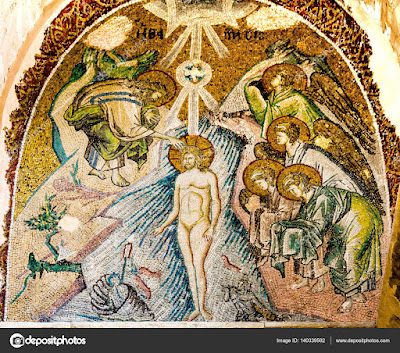The Church Fathers on: Authority of Bishops II
What did the Early Christians
Believe?
Authority of the
Bishop/Presbyters
“Now,
therefore, it has been my privilege to see you in the person of your
God-inspired bishop, Damas; and in the persons of your worthy
presbyters, Bassus and Apollonius; and my fellow-servant, the deacon
Zotion. What a delight is his company! For he is subject to the
bishop as to the grace of God, and to the presbytery as to the law of
Jesus.” (Ignatius of Antioch, 110 AD, Letter to the
Magnesians, [2] )
“It becomes you
not to presume on the youth of the bishop, but to show him all
reverence in consideration of the authority of God the Father: just
as even the holy presbyters, so I have heard, do not take advantage
of his outwardly youthful appearance, but yield to him in their godly
prudence: yet not to him, but to the Father of Jesus Christ, the
Bishop of all.” (ibid. [3,1] )
“Take care to do
all things in harmony with God, with the bishop presiding in the
place of God and with the presbyters in the place of the council of
the Apostles, and with the deacons, who are most dear to me,
entrusted with the business of Jesus Christ, who was with the Father
from the beginning and is at last made manifest.” (ibid. [6,1] )
“Indeed, when you
submit to the bishop as you would to Jesus Christ, it is clear to me
that you are living not in the manner of men but as Jesus Christ, who
died for us, that through faith in His death you might escape dying.
[2] It is necessary, therefore, – and such is your practice, –
that you do nothing without the bishop, and that you be subject also
to the presbytery, as to the Apostles of Jesus Christ our hope, in
whom we shall be found, if we live in Him. (Ignatius of Antioch, 110
AD, Letter to the Trallians, [2,1-2] )
“In like manner
let everyone respect the deacons as they would respect Jesus Christ,
and just as they respect the bishop as a type of the Father, and the
presbyters as the council of God and college of Apostles. Without
these, it cannot be called a Church.” (Ignatius of Antioch, 110
AD, Letter to the Trallians, [3,1] )
“He that is in the sanctuary is pure; but he that is outside the
sanctuary is not pure. In other words, anyone who acts without the
bishop and the presbytery and the deacons does not have a clean
conscience.” (Ignatius of Antioch, 110 AD, Letter to the
Trallians, [7,2] )





Comments
Post a Comment